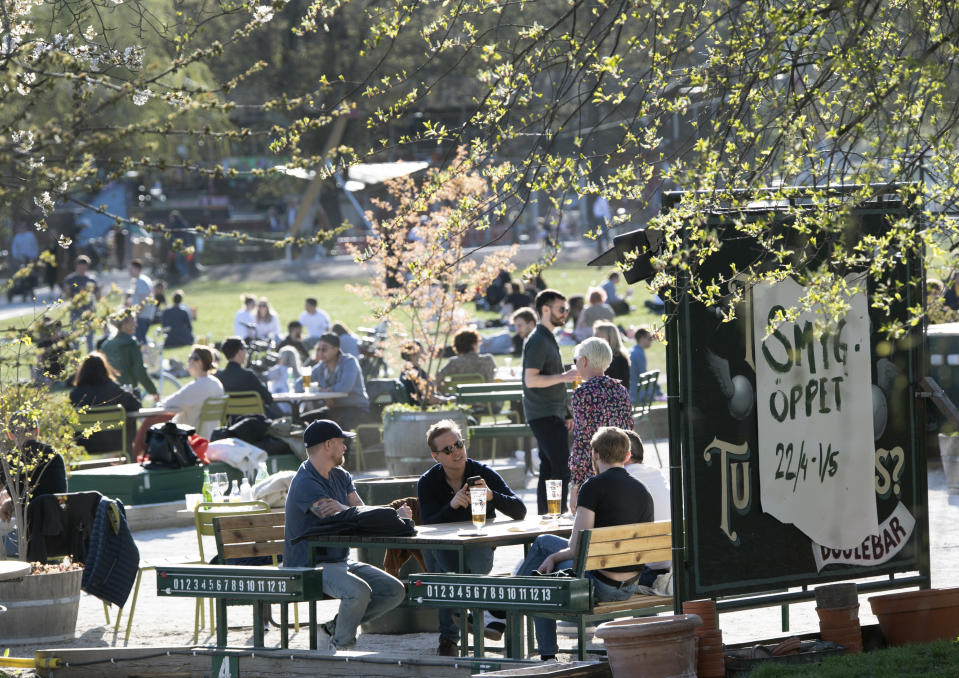'We understood nothing’: Scientists regret Sweden’s controversial virus strategy
Sweden’s leaders have expressed regret over their relaxed approach to battling the global coronavirus pandemic as cases and deaths caused by the virus skyrocket.
Deaths have been eight times higher than Denmark and 19 times higher than Norway despite Sweden being just double its neighbours’ size.
One of Sweden's leading researchers of pandemics has this week revealed the strategy adopted by Sweden was based on the misguided belief that COVID-19 behaved similar to the flu.
“I know that many countries looked at Sweden as a good example of an open society. We had a relatively low number of cases. And then it started to skyrocket. We understood absolutely nothing,” Björn Olsen, a professor of infectious medicine at Uppsala University, said, The Hour reported.
“You look at everyone else's curve, it is typical. You go up, you peak, then you go down on the other side. But in Sweden you have a plateau at a pretty high level.”

He said it was now understood that instead of behaving like the flu, which was extremely contagious and fast-spreading, the virus concentrated in certain spots and wreaked havoc.
Swedish state epidemiologist Anders Tegnell said it was clear Sweden’s approach was not effective in managing the pandemic, telling Swedish Radio on Wednesday “there is potential for improvement in what we have done”.
Mr Tegnell said Sweden didn’t get it completely wrong though - he stood by it’s decision to keep society largely open, but said closing down certain areas may have been beneficial.
“It would be good to know more exactly what to shut down to prevent the spread of infection better,” he said.
He told a news conference in Stockholm “the Swedish strategy was wrong and should be changed. That's not the case”.
“We still believe that our strategy is good, but there is always room for improvement,” he said.
“You can always get better at this job.”
Criticism over Sweden’s strategy had left him sometimes feeling “like a personal punchbag”, he told The Associated Press, but he said: “that's OK. I can live with that”.

The open-door approach to schools taken by Sweden has come to attract praise from public health officials in Norway and Denmark, where the risk to children under 14 was detected to be low.
Prime minister Stefan Löfven also conceded on Wednesday (local time) that shortfalls in the country’s response undoubtedly caused a higher rate of deaths among its elderly population.
“We must admit that the part that deals with elderly care, in terms of the spread of infection, has not worked. It is obvious. We have too many elderly people who have passed away,” Mr Löfven told the Aftonbladet newspaper.
Unlike most European countries in March, Sweden’s residents were not subject to strict lockdowns and instead were encouraged to social distance, work from home and practice hand hygiene.

Older students were kept home from schools, gatherings of more than 50 were banned and elderly and vulnerable people were urged to self isolate.
The nonchalant response drew criticism from overseas, with Sweden commonly referenced to be attempting a “herd immunity” approach.
There have been nearly 42,000 cases of COVID-19 recorded and 4500 deaths - stark figures when compared to the 580 deaths in Denmark, 320 in Finland and 237 in Norway.
Mr Tegnell said the death toll had “absolutely” made him reconsider the approach taken by Sweden.
“If we were to encounter the same disease again, knowing precisely what we know about it today, I think we would settle on doing something in between what Sweden did and what the rest of the world has done,” he told Swedish Radio.
with The Associated Press
Do you have a story tip? Email: newsroomau@yahoonews.com.
You can also follow us on Facebook, Instagram and Twitter and download the Yahoo News app from the App Store or Google Play.




